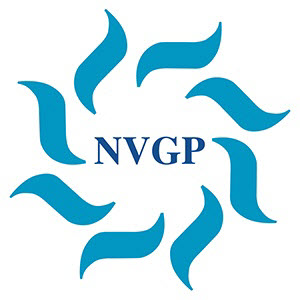Feedback in Group Psychotherapy for Eating Disorders
Davidsen, A., et. al. (2017)Feedback in Group Psychotherapy for Eating Disorders. Journal of Consulting and Clinical Psychology, 85 (5), 484–494
http://dx.doi.org/10.1037/ccp0000173.
Verslaggever Willem de Haas
Abstract
Objective: To investigate the effect of client feedback in group psychotherapy on attendance and treatment outcome for patients with eating disorders. Method: We conducted a randomized clinical trial with central randomization stratified for diagnosis and treatment type according to a computer-generated allocation sequence concealed to the investigators. One-hundred and 59 adult participants, diagnosed with bulimia nervosa, binge eating disorder, or eating disorder not otherwise specified according to DSM–IV, were included. Eighty participants were allocated to the experimental group, and 79 participants to the control group. Both groups received 20–25 weekly group psychotherapy sessions. In the experimental group, participants gave and received feedback about therapy progress and alliance, measured before and after each session using the Outcome Rating Scale and the Group Session Rating Scale. The primary outcome was rate of attendance to treatment sessions; the secondary outcome was severity of eating disorder symptoms measured with the Eating Disorder Examination interview. Exploratory outcomes were psychological distress measured with the Symptom Checklist-90-R and the Outcome Rating Scale, social functioning measured with the Sheehan Disability Scale, and episodes of self-harm and suicide measured with a modified version of the Self-Harm Inventory.
Results: Feedback compared with control did not affect the rate of attendance (0.59 vs. 0.58; p _ .96), the severity of symptoms (2.03 vs. 2.02; p _ .46), or any of the exploratory outcomes (p values from 0.06 to 0.67).
Conclusions: Feedback neither increased attendance nor improved outcomes for outpatients in group psychotherapy for eating disorders. The results are discussed from different perspectives.
What is the public health significance of this article? This trial highlights the importance of flexibility in the treatment setting, when implementing feedback-informed treatment and assessing the effect of it on psychotherapy outcome.
Keywords: group psychotherapy, feedback-informed psychotherapy, eating disorders, systemic and narrative psychotherapy
Wat betekent dit voor de groepspsychotherapie en de NVGP?
Sinds de invoering van de Routine Outcome Monitoring , is er onderzoek gedaan naar het effect daarvan, bijvoorbeeld op het resultaat, of op de therapietrouw.
Er bestaan meerdere onderzoeken naar deze verbanden, die uiteenlopende resultaten geven. Dit onderzoek over het gebruik van ROM feedback bij groepsbehandeling van eetstoornissen laat zien dat de terugkoppeling van de Rom feedback geen verhoging van het resultaat met zich meebrengt, noch van de aanwezigheid. Zie ook binnen dit domein de onderzoeken van Koementas, Slone, Hafkenscheid en Chapman.
| Relevantie voor richtlijnen | O O O O O |
| Relevantie voor onderzoek | O O O O O |
| Relevantie voor groepsbehandeling | O O O O O |
| Relevantie voor teamcoaching | O O O O O |
| Relevantie voor groepsdynamicaopleiding | O O O O O |
| Relevantie voor groepstherapieopleiding | O O O O O |
| Relevantie voor KP opleiding of Psychiatrieopleiding | O O O O O |
